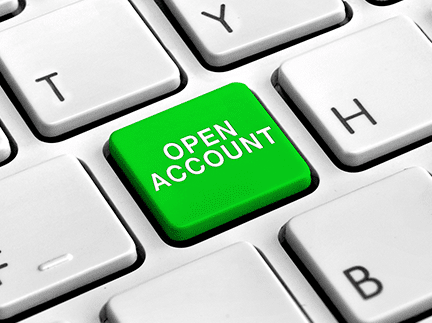Bank Account Opening Process: What You Need to Know Before You Open
Bank Account Opening Process: What You Need to Know Before You Open
Blog Article
Leading Tips for Opening a Checking Account: Ensure Smooth and Efficient Configuration
Opening up a checking account might seem straightforward, yet a systematic approach can significantly boost the experience and established the phase for a successful banking relationship. By understanding the variety of account types available, gathering vital documents, and contrasting banking establishments, one can prevent typical pitfalls. Furthermore, thinking about the nuances in between online and typical financial options is crucial. Nevertheless, one of the most vital action typically hinges on comprehensively evaluating the problems and terms-- a facet many forget. What complies with can make all the difference in your financial experience and financial wellness.
Understand Different Account Types
When opening a bank account, it is vital to acquaint on your own with the different account types available. Understanding these alternatives will enable you to select an account that best fits your economic needs and goals.
:max_bytes(150000):strip_icc()/how-can-i-easily-open-bank-accounts-315723-FINAL-3547624de9a648379a90fe38c68a2f7c.jpg)
Interest-bearing accounts, on the other hand, are designed for saving money and typically use greater rate of interest rates than examining accounts. They might have withdrawal limitations, encouraging you to conserve over time. For individuals searching for a greater return on their savings, CDs provide set rate of interest rates for a specified term, yet they need you to secure your funds till maturation.
Furthermore, there are specific accounts like cash market accounts and pension, each with special functions and benefits. By comprehensively recognizing these account types, you can make enlightened choices that straighten with your monetary approach and way of life.
Gather Required Documentation
Collecting the essential documentation is an essential action in the process of opening up a savings account. Proper paperwork not only helps with a smooth application process but likewise assists in validating your identification, making sure compliance with regulative demands.
Furthermore, a Social Safety Number (SSN) or Private Taxpayer Identification Number (ITIN) is usually required for tax obligation coverage functions. Some bankss might likewise request proof of address, which can be demonstrated via utility expenses, lease arrangements, or bank statements.

Furthermore, if you are a small, parental permission and identification might be required. It's recommended to check with the specific bank regarding their paperwork needs ahead of time, as these can differ. By making certain all essential records are prepared, you can quicken the account opening procedure and prevent prospective hold-ups.
Research Banks and Costs
An extensive comparison of various bankss and their cost structures is important for selecting the appropriate banks for your needs. Various bankss offer a series of solutions, and comprehending their fees can dramatically influence your overall banking experience. Begin by recognizing your financial demands, such as whether you require an examining account, interest-bearing account, or both.
Next, examine the charge frameworks connected with each account type. Common costs include month-to-month maintenance charges, overdraft costs, ATM use costs, and international deal fees. Some bankss may forgo these fees if you keep a minimum balance or established straight deposits.
Additionally, examine any costs connected to account solutions, such as cable transfers, printed statements, or check orders. It is also sensible to examine the rates of great post to read interest offered on interest-bearing accounts, as these can vary significantly amongst institutions.
Consider Online vs. In-Person
Selecting in between online and in-person banking can substantially affect your general financial experience and benefit (bank account opening). Each choice provides unique advantages that satisfy various preferences and way of lives
On-line financial offers a high level of adaptability and ease of access. With the capability to manage your account from anywhere using a smartphone or computer system, electronic banking enables quick deals, equilibrium checks, and expense repayments at any type of time. In addition, lots of on the internet bankss offer competitive rates of interest and reduced charges due to lowered expenses prices.
Alternatively, in-person financial supplies a personal touch that some consumers may locate calming. Checking out a physical branch enables for direct interaction with bank reps, which can be especially advantageous for intricate queries or economic advice. In-person financial likewise makes it possible for customers to deposit cash, acquire instantaneous assistance, and develop partnerships with team, fostering a sense of trust fund.
Ultimately, the choice in between online and in-person banking need to be based upon your specific demands, convenience degree with technology, and the particular services you require. Consider your financial behaviors and preferences meticulously to establish which option aligns finest with your financial objectives.
Review Terms and Conditions

When evaluating the terms and conditions, pay attention to crucial elements such as fees, rates of interest, and account features. Search for month-to-month upkeep fees, transaction restrictions, and fines for overdrafts or very early withdrawals (bank account opening). Understanding these fees can help you avoid unexpected charges and manage your funds more successfully
In addition, think about the rates of interest offered on savings or checking accounts. Higher rates of interest can significantly impact your savings over time. It's likewise vital to understand the terms connected to bonus offers, rewards programs, and marketing offers, as these can enhance your banking experience.
Finally, guarantee you understand the bank's policies on customer support, conflict resolution, and privacy. Acquainting yourself with these conditions will certainly empower you to make enlightened decisions and develop an efficient partnership with your bank. Putting in the time to completely review the problems and terms can stop future misconceptions and foster long-term complete satisfaction with your banking experience.
Verdict
In conclusion, a knowledgeable method to opening a checking account facilitates a efficient and smooth configuration process. Comprehending the various account kinds, gathering essential paperwork, and looking into bankss and connected costs are essential steps. Furthermore, weighing the advantages of in-person versus on the internet banking choices can improve ease. Lastly, cautious review of problems and terms makes sure clarity regarding fees, features, and account owner obligations, inevitably bring about an extra satisfactory banking experience.
Opening a bank account may seem straightforward, yet a methodical method can dramatically improve the experience and set the phase for a successful financial relationship.The most usual kinds of accounts include checking accounts, financial savings accounts, and certificates of deposit (CDs)Financial savings accounts, on the various other hand, are created for saving cash and normally supply greater passion rates than description examining accounts. Begin by recognizing your banking requirements, such as whether you require an inspecting account, savings account, or both.
Understanding the different account kinds, gathering essential documentation, and looking into bankss and connected costs are crucial steps.
Report this page